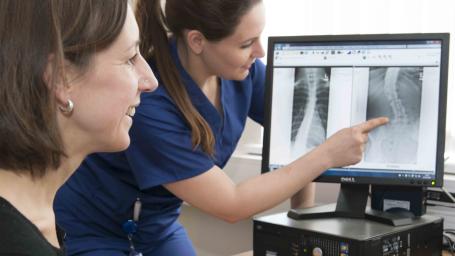Self-Help
Here are a selection of instructional self-help videos provided by the NHS to help you manage your own health.
How to prevent dehydration
Dehydration means your body loses more fluids than you take in. If it isn’t treated it can get worse and become a serious problem. This video shows how you can reduce the risk of dehydration.
For more information visit the NHS website
How to treat a cold
Cold symptoms come on gradually and can include:
- blocked or runny nose
- sore throat
- headaches
- muscle aches
- coughs
- sneezing
- a high temperature (more than 38C in adults, 37.5C in children)
- pressure in your ears and face
- loss of taste and smell
The symptoms are the same in adults and children. Sometimes, symptoms last longer in children.
A pharmacist can help with cold medicines.
You can buy cough and cold medicines from pharmacies or supermarkets. A pharmacist can advise you on the best medicine.
You can:
- relieve a blocked nose with decongestant sprays or tablets
- ease aches or lower a temperature with painkillers like paracetamol or ibuprofen
Be careful not to use them if you’re taking paracetamol and ibuprofen tablets as it’s easy to take more than the recommended dose.
Some are not suitable for children, babies and pregnant women.
There’s little evidence that supplements (such as vitamin c, zinc, echinacea or garlic) prevent colds or speed up recovery.
For more information visit the NHS website.
How to treat a sore throat
Sore throats are very common and usually nothing to worry about. They normally get better by themselves within a week.
See your GP if:
- your sore throat doesn’t improve after a week
- you often get sore throats you’re worried about
- your sore throat you have a sore throat and a temperature of 38C or above
- you have a weakened immune system - for example because of HIV or chemotherapy
How to treat sinusitis
Sinusitis is swelling of the sinuses, usually caused by an infection. It’s common and usually clears up on its own within 2 to 3 weeks. In some cases it lasts a long time.
You can often treat mild sinusitis without seeing your GP.
To relieve sinus pain, take painkillers such as paracetamol or ibuprofen. Don’t give aspirin to children under 16.
You can also relieve sinus pain by:
- soaking a clean flannel in warm water
- holding it against your forehead and cheeks for 5 to 10 minutes
- repeating this 3 or 4 times a day
For more information visit the NHS website
How to treat earache
For more information visit NHS website.
How to treat tonsillitis
Tonsillitis can feel like a bad cold or flu. The tonsils at the back of your throat will be red and swollen.
Symptoms will usually go away after 3 to 4 days.
Tonsillitis isn’t contagious but the infections that cause it are (for example, colds and flu).
To stop these infections from spreading:
- Stay off work or keep your child at home until you or your child feel better
- Use tissues when you cough or sneeze and throw them away after
- Wash your hands after coughing or sneezing
For more information visit the NHS website
How to treat diarrhoea
Diarrhoea often lasts 2 to 4 days in adults and 5 to 7 days in babies or children.
Diarrhoea can be infectious. To avoid giving it to other people you should:
- stay off work for 2 days
- keep children at home for two days
- avoid swimming pools for two weeks
You can take medicines to help reduce the diarrhoea and shorten how long it lasts. However, you don’t have to take these and they won’t cure your diarrhoea.
Describe your symptoms to the pharmacist. They can recommend the best medicine for you.
Frail or elderly people can dehydrate more easily. You can get sachets with salt, sugar and minerals at the pharmacy which you can use in addition to the normal diet. They’re called oral rehydration solutions.
For more information visit the NHS website
How to treat constipation
Constipation is common and it affects people of all ages. You can usually treat it at home with simple changes to your diet and lifestyle.
For more information visit the NHS website
How to treat sprains and strains
Sprains and strains are common injuries affecting the muscles and ligaments. Most can be treated at home without seeing a GP.
For more information visit the NHS website
How to treat a nosebleed
Nosebleeds aren’t usually a sign of anything serious. They’re common, particularly in children, and most can be easily treated at home.
Sometimes the cause of a nosebleed is unknown.
Certain people are more prone to getting nosebleeds, including:
- children (they usually grow out of them by 11)
- elderly people
- pregnant women
For more information visit the NHS website.
How to treat an insect bite or sting
Most insect bites and stings clear up on their own in a few hours or 2 to 3 days. You can usually treat them without seeing a GP.
To reduce the risk of infection apply antiseptic to the bite or sting and try not to scratch it or burst any blisters. There’s little proof that using vinegar or bicarbonate of soda will help.
Tick bites can be more serious than other insect bites and the first aid treatment for them is different.
For more information visit NHS website.
More self-help videos
NHS have a range of self-help videos to help you manage your health. Visit www.youtube.com to find out more.


